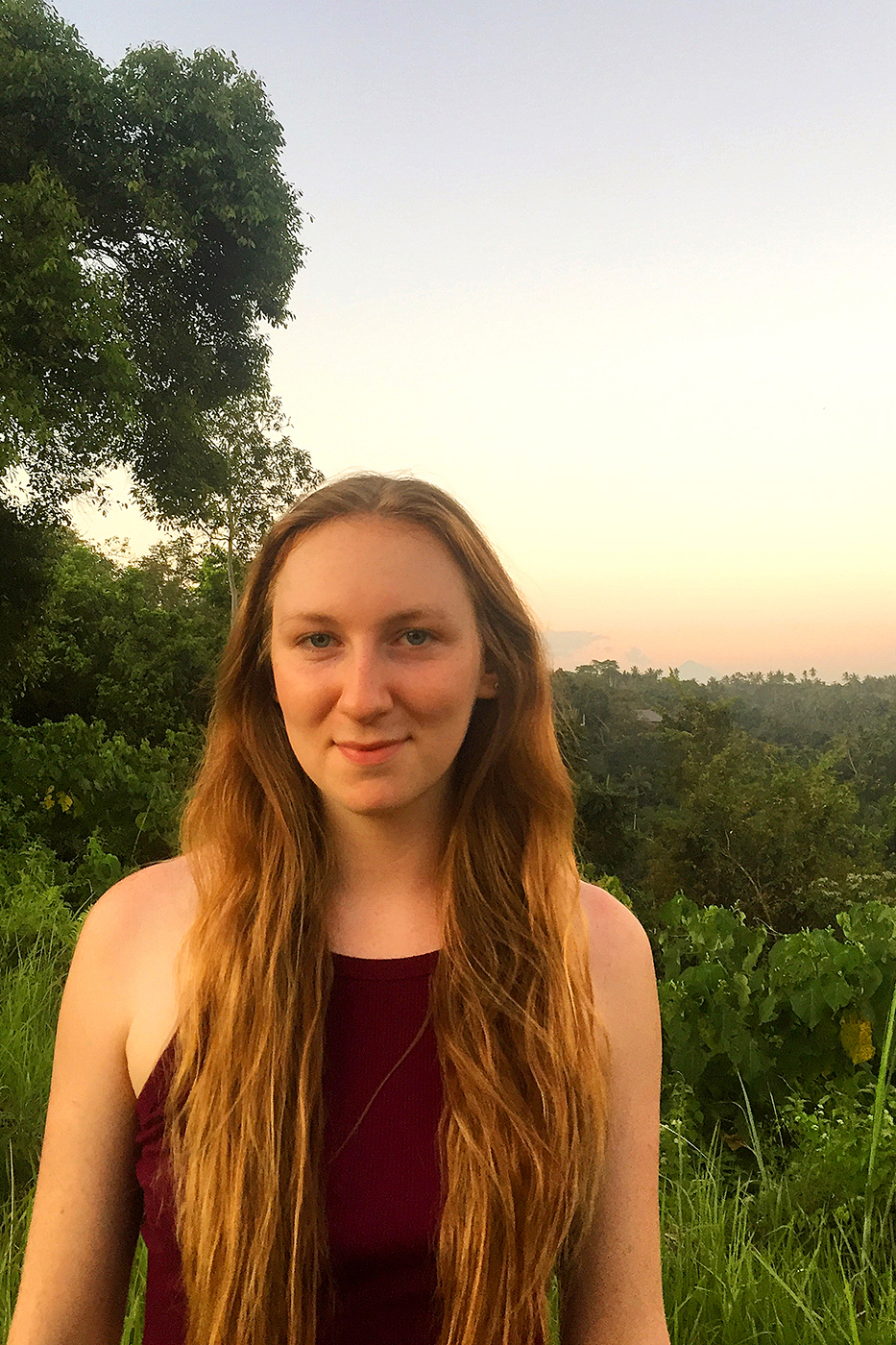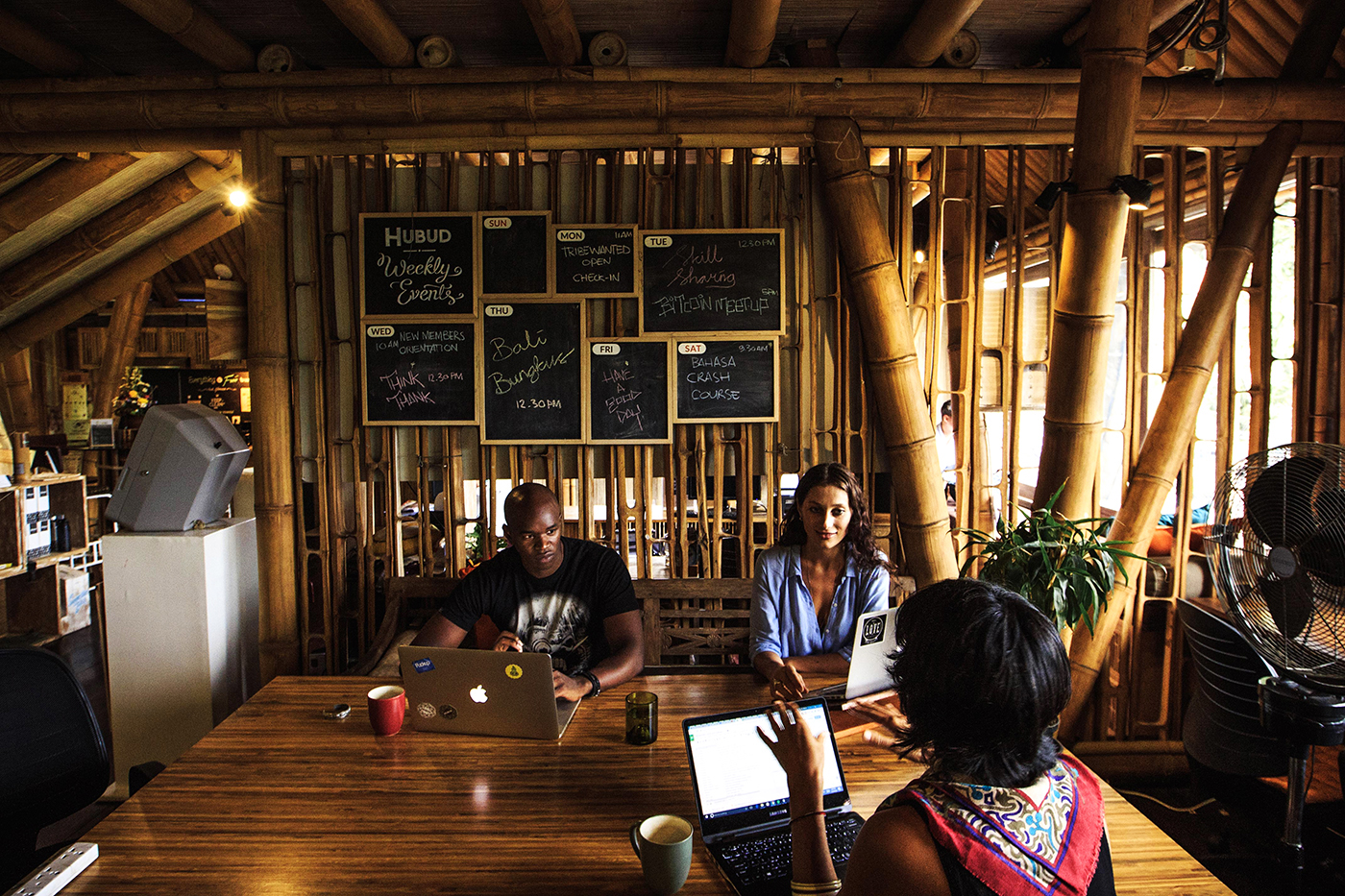Why work in an office when you can work from a beach in Bali?

Some days the beach is her office, and other days she heads to a yoga class in the middle of the work day.
If you’re feeling envious of that lifestyle, book the next flight to Bali, Indonesia, where Jessica Lynch-Foust can help you start your own online business, make your own hours, and work from the beach.

“A lot of people are more productive when they work remotely on their own time, ” said Jessica Lynch-Foust, who is studying human services and international affairs at Northeastern. Photo courtesy of Hubud.
Lynch-Foust works on co-op at Hubud, a space in Bali where people from all over the world pay a fee to use the company’s bamboo structure as their personal office. When they aren’t working, Hubud members relax in an inground pool overlooking the island’s rice fields.
“People crave flexibility and to work in a way that works best for you,” said Lynch-Foust, who is studying human services and international affairs at Northeastern. “A lot of people are more productive when they work remotely on their own time.”
As the programs intern, Lynch-Foust is helping Hubud prepare for the company’s newest endeavor, Launch 30, which will help budding entrepreneurs create and launch online businesses in just 30 days. She helped plan workshops for entrepreneurs to solidify their business plans, design their websites, and learn how to attract clients.
Lynch-Foust said people who travel the world working remotely are called digital nomads or location-independent workers. This new kind of labor force is becoming more common. A study found that more than half of professionals worldwide work remotely for at least half the work week. If growth continues at this current pace, more than half of Americans will be freelancers in 10 years, according to the Freelancers Union.
“Once someone realizes they can work remotely,” said Lynch-Foust, “they often think, ‘well why am I doing it from home?’”
Lynch-Foust said that Bali is one of the world’s hotspot for digital nomads, primarily because of its innate beauty and low cost of living. Since Hubud opened five years ago, similar spaces have popped up around the island, she said.

As the programs intern, Lynch-Foust is helping Hubud prepare for the company’s newest endeavor, Launch 30, which will help budding entrepreneurs create and launch online businesses in just 30 days. Photo courtesy of Hubud.
Thousands of people who work remotely have used Hubud, some for just a few days and others for years. Lynch-Foust said the people who use the space come from a wide range of industries, including online retail, software engineering, and online life coaching.
She said the managers at Hubud practice what they preach. Even though Lynch-Foust isn’t working remotely, Hubud employees are afforded the opportunity to have flexible work schedules. She said that she doesn’t see herself becoming a full-time digital nomad in the future, but she does enjoy the freedom to determine what makes her more productive.
“I see myself wanting to have more flexibility in my work life,” said Lynch-Foust. “I don’t think 9 to 5 everyday is going to work for me, now that I’ve seen what it’s like to not have that.”





